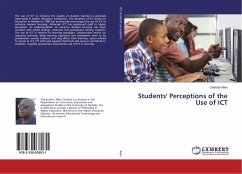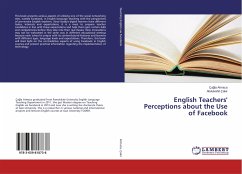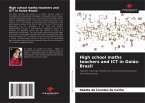The use of ICT to enhance the quality of student learning is generally observable in higher education institutions. The adoption of ICT policy for education in Namibia in 1996 has profoundly encouraged the use of ICT to enhance student learning. Although ICT has positioned itself in higher education, its implementation to enhance student learning has been received with mixed feelings, attitudes and perceptions among students. The use of ICT in relation to learning paradigm, collaborative and/or co-operative learning, deep learning approach and assessment seem to be problematic among students and may affect their learning. Issues related to access to ICT, ICT skills and support (technical and service) contribute to students' negative perceptions towards the use of ICT in learning.
Bitte wählen Sie Ihr Anliegen aus.
Rechnungen
Retourenschein anfordern
Bestellstatus
Storno








